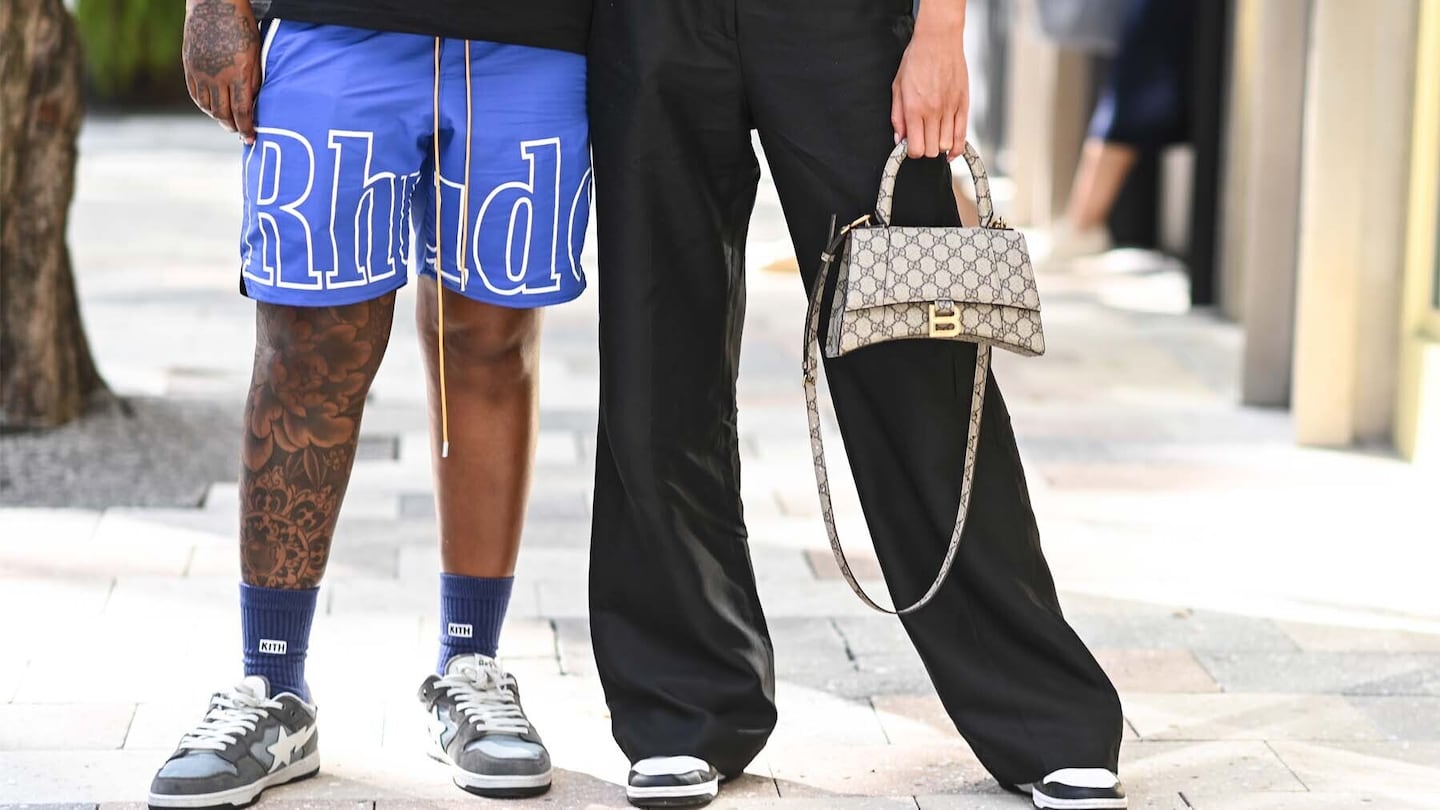
The Business of Fashion
Agenda-setting intelligence, analysis and advice for the global fashion community.

Agenda-setting intelligence, analysis and advice for the global fashion community.

LOS ANGELES — In a city filled with restaurants designed to bait the wealthy and well-known, Nobu Malibu — warmly lit, wood-paneled and perched on the edge of the Pacific Ocean — is a microcosm of high-end consumer culture as it operates in the US today.
On a recent visit, packs of teenagers in modest floral dresses sat alongside young couples vying for a canceled reservation at the sushi bar, with crews of 30-somethings sipping “market” margaritas. However, what united the notably diverse crowd was not necessarily a love of Nobu Matsuhisa’s miso-marinated black cod, but rather a taste for labels like Louis Vuitton, Fendi, Gucci and Dolce & Gabbana, which they mixed with pricey streetwear lines, such as LA-based Rhude.
The early days of Covid-19 hit the luxury sector hard, forcing thousands of store closures and crashing demand for non-essential fashion goods. Then, in 2021, top-tier labels came roaring out of the chaos, with many reporting sales jumps of 30 to 40 percent from pre-pandemic levels.
However, in an industry that prides itself on taking the long view, some insiders are asking: can this last? After decades of unprecedented success, could some of the big brands be on the precipice of their most challenging decade yet?
ADVERTISEMENT
The label-hungry Nobu crowd reflects a consumer economy in transition. First off, after two years of lockdowns and restrictions, they’re eager to spend more of their disposable income on experiences, which could pose a threat to luxury brands that have benefited from shoppers being stuck in one place. Air travel in the US is almost back to pre-pandemic levels, according to the Transportation Security Administration. (American Airlines said it set a monthly sales record in March.) Live concert ticket sales are up 45 percent from 2019, according to Ticketmaster-owner Live Nation.
At the same time, macroeconomic headwinds are mounting. The chances of a global recession are rising every day, as key markets contend with record-breaking inflation and the fallout from China’s “zero-Covid” strategy and Russia’s Ukraine invasion.
Hardest hit will be consumers who traded up during the pandemic.
“That’s the group that’s going to have to start making hard choices,” said Milton Pedraza, chief executive officer of the Luxury Institute, a research firm.
While the bottom 80 percent of consumers account for just 30 percent of sales at most large luxury brands, they are important to top-line growth and are “not recession proof,” added Karla Martin, a managing director at Deloitte.
At the moment, American consumers, many of whom benefitted from multiple rounds of direct stimulus checks, are shaking off inflation by dipping into savings amassed during lockdowns. But if rates remain high, those savings will continue to evaporate.
The situation is equally tenuous in China. So far, major labels have dismissed China’s Covid woes as temporary, but the combination of highly contagious variants and the country’s “zero-Covid” policy could spell longer-term trouble, experts say.
“China was an extremely reliable market, particularly for accessories,” said Martin. “That gets trickier with Covid and the political situation.”
ADVERTISEMENT
More broadly, the way people shop for items from big luxury brands is also changing. Consumers crave newness at a pace never seen before, but the relentless marketing of products has had the side effect of making big labels feel more ubiquitous than ever. For brands that trade on perceived exclusivity, that could create fatigue.
For instance, while the average consumer may not be able to afford a $10,000 Chanel jacket, she can now easily keep an image of that jacket as a screensaver on her phone, potentially making it feel less special. It could even decrease her desire to buy the label’s cheaper products, according to Ana Andjelic, author of “The Business of Aspiration.” This exposure is different than the overexposure brands like these experienced in the late 1970s, when they were licensed into near-oblivion — but it’s extreme exposure nonetheless.
“Luxuries are necessarily status symbols, and status symbols only work if they conjure clear associations to elite groups,” added W. David Marx, author of the forthcoming “Status and Culture: How Our Desire for Social Rank Creates Taste, Identity, Art, Fashion and Constant Change.”
”When brands become too ubiquitous, consumers become suspicious,” he said, “and, then, certain that their ownership will lump them together with people they don’t like.”
Some experts argue that the world is fragmented enough, though, for different consumer segments to buy into the same brand without feeling like it is too accessible. Top labels ensure that their distribution, pricing and exposure is segregated enough to welcome all types of consumers.
“You see that purse everywhere when you’re scrolling through Instagram, but you don’t see it every day when you’re walking down the street,” Martin said.
Will the playbook continue to work indefinitely? As luxury becomes more accessible to even more people, this reliable set of tactics may no longer be as effective as they once were.
Brands from Valentino to Prada and start-ups like Pulco Studios are vying to cash in on the racket sport’s aspirational aesthetic and affluent fanbase.
The fashion giant has been working with advisers to study possibilities for the Marc Jacobs brand after being approached by suitors.
A runway show at corporate headquarters underscored how the brand’s nearly decade-long quest to elevate its image — and prices — is finally paying off.
Mining company Anglo American is considering offloading its storied diamond unit. It won’t be an easy sell.